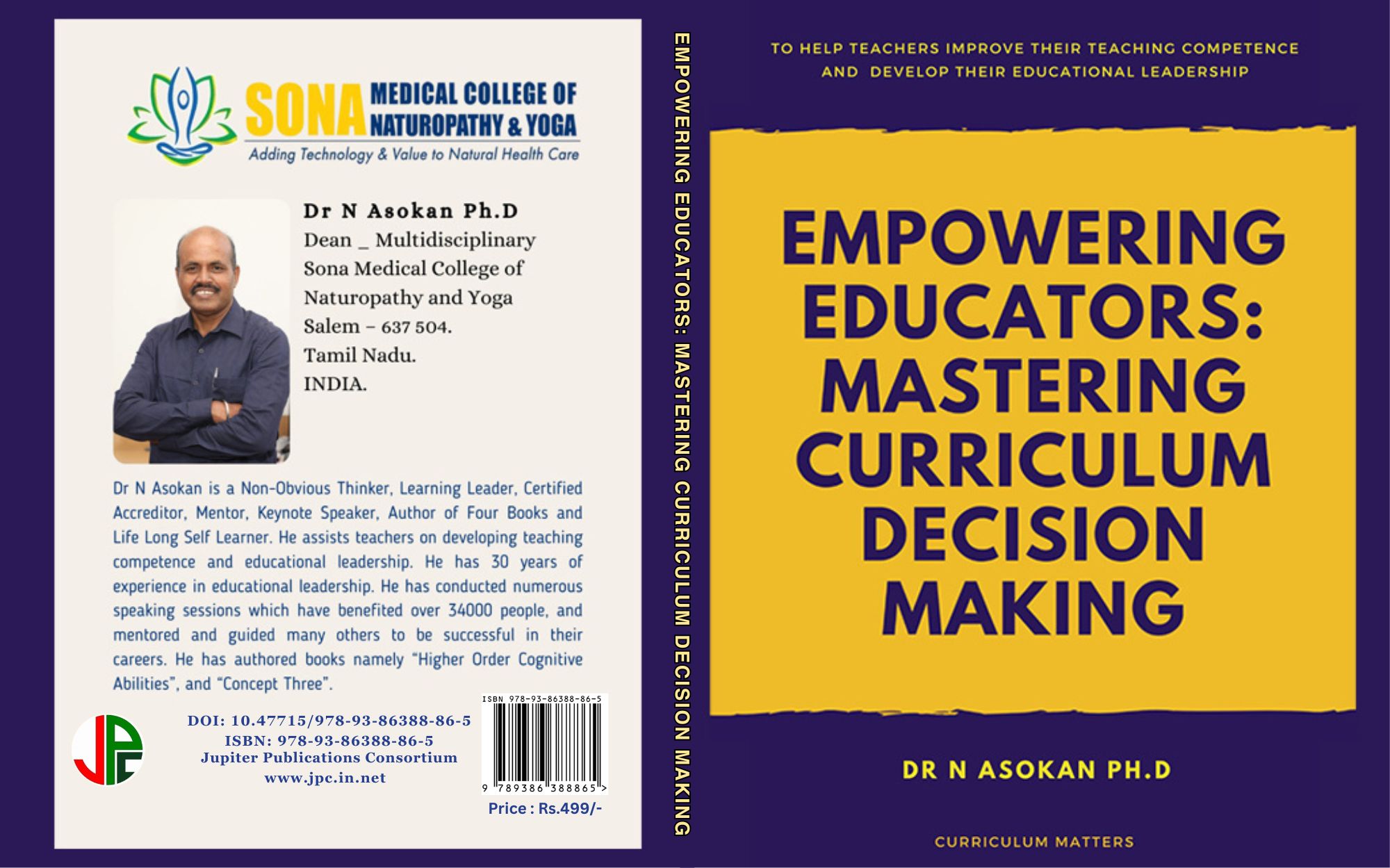Abstract
Curriculum Decisions Matters
Effective curriculum decision making is the backbone of exceptional education. It has the power to inspire, engage, and transform students, teachers, and entire learning communities. Yet, for many educators and educational leaders, curriculum development and implementation can be a daunting and complex task. The ever-changing educational landscape, diverse student needs, and competing stakeholder demands can make it challenging to create and implement a curriculum that truly supports student success for their life and career.
“Empowering Educators: Mastering Curriculum Decision Making” is designed to address this critical need. This book provides educators with the knowledge, competence, and confidence to take ownership of curriculum decision making, ensuring that every student receives a high-quality education.
Curriculum decisions directly influence what students learn, how they learn, and the overall quality of their educational experience. A well-designed curriculum ensures alignment with institutional, local, and national educational goals, standards, and policies. Curriculum decisions shape teaching methodologies, instructional strategies, and assessment approaches. It affects student achievement, engagement, motivation, and future career prospects.
Curriculum decision making involves teachers in professional development, fostering collaboration, and expertise, reflect societal values, cultural norms, and community expectations, help prepare students for an evolving, complex, and interconnected world, influence resource allocation, including budgeting, staffing, and infrastructure.
Curriculum decisions ensure accountability to stakeholders, including parents, policymakers, and the broader community and facilitate adaptability to changing educational landscapes, technologies, and societal needs.
Written for teachers, school leaders, educators, educational leader, education decision makers and education policymakers, this comprehensive guide offers different attributes to be considered in framing curriculum, delivering the content and assessing the
students, to empower educators to navigate the complexities of educational policy and reform.
“Empowering Educators” will equip you with the expertise to make informed, curriculum decisions that foster academic excellence, social-emotional growth, and lifelong learning.
Part 1 of this book discusses about the definitions, concepts and ideologies, models of curriculum. The importance of curriculum and syllabus inside the classroom.
Second Part 2 of this book discusses about why curriculum decision makers have to consider the Mission (Purpose) of Teaching Profession, of Program and the Mission of institution and how it has to be synchronised with vision and core values of stakeholders.
Why educators agrees its students should develop the graduate attributes during their time with the institution and consequently shape the contribution they can make to their profession and society.
Why the development of metacognition, higher order thinking skills, development of requisite competence of students during their period of study is important and how decision makers to provide space and time for the development that matters.
How the transdisciplinary learning helps the graduates passed out of higher educational institutions to solve the current and anticipating societal problem.
How different dimensions of National Education Policy 2020 (NEP 2020) has to be incorporated into the curriculum.
How do we develop graduates for the future of work, where new jobs emerge that just didn’t exist, or have not been invented yet.
Why we need to develop the reading of different genre of books among our students during the period of study to understand the different authors ideas, concepts, principles and frameworks, which help the graduates to apply in any new situations.
This book aims to empower educators to take charge of curriculum decision making, providing them confidence and courage to create exceptional learning experiences for all students.
Keywords: Curriculum decision making, Educational policy, Curriculum development, Educational leadership, Student success, Teaching methodologies, Instructional strategies, Assessment approaches, Professional development, National Education Policy 2020 (NEP 2020), Graduate attributes, Metacognition, Higher-order thinking skills, Transdisciplinary learning, Lifelong learning, Social-emotional growth, Curriculum alignment, Educational goals, Stakeholder demands, Resource allocation, Adaptability in education, Mission and vision of education, Future workforce readiness, Reading diverse genres, Educational reform, Complex educational landscape, Empowering educators, Exceptional learning experiences.
Dr. N. Asokan, Ph.D.
December 2024
How to cite this E-Book:
Asokan, N. (2024). Empowering Educators: Mastering Curriculum Decision Making (1st ed.). ISBN: 978-93-86388-86-5. Jupiter Publications Consortium. https://www.doi.org/10.47715/978-93-86388-86-5
Download E-Book (Partial)






Reviews
There are no reviews yet.